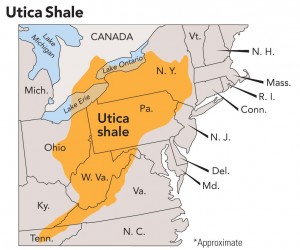Webinar to Examine Utica and Pt. Pleasant Shale Formations
From an Article in the Gant Daily, June 10, 2014
This month’s web-based seminar presented by Penn State Extension’s Marcellus Education Team, entitled, “Utica/Point Pleasant – Where are we at Now?” will be held at 1 p.m. June 19.
Manuj Nikhanj, managing director, head of energy research for ITG Investment Research, will discuss these plays from an analytical perspective.
The Utica and Point Pleasant formations are often discussed with the Marcellus, but how do they compare to the Marcellus, how much can they produce, and at what cost?
“The Marcellus and Utica Shales are two of the most prolific plays in North America,” states Nikhanj. “I will discuss EURs, economics, production and resource along with the effect that new completion designs are having on productivity of the Utica/Point Pleasant in comparison with the Marcellus.”
Penn State Extension’s Marcellus Education Team has been providing at least monthly webinars on a variety of topics. Upcoming webinars include:
-July 17: “Industry Workforce and Training,” Penn College of Technology and Pennsylvania Department of Labor and Industry;
-Aug. 21: “Natural Gas Processing and Effects on Royalty Income Streams,” Steven Karabin, president and chief executive officer, The Rhino Group.
The webinars are free, but participants must register on the events page of the Penn State Extension Natural Gas Web site. The site also offers information about upcoming webinars. It is important that registrants provide an email address to receive the link to the upcoming webinar.
Previous webinars, publications and information also are available on the Penn State Extension natural-gas Web site, covering a variety of topics, such as natural gas production and waste figures; oil and gas best practices; Act 13 (Pennsylvania’s oil and gas law); the volume of gas in shale formations under Pennsylvania; seismic testing; air pollution from gas development; water use and quality; natural gas liquids regional development; royalties; gas-leasing considerations for landowners; gas pipelines and right-of-way issues; legal issues surrounding gas development; the impact of Marcellus gas development on forestland; gas pipelines and pipeline project trends; royalty calculations and decline curves and the reclamation of cuttings from the drilling of shale gas wells.
For more information, contact Carol Loveland at 570-320-4429 or by e-mail at cal24@psu.edu.

